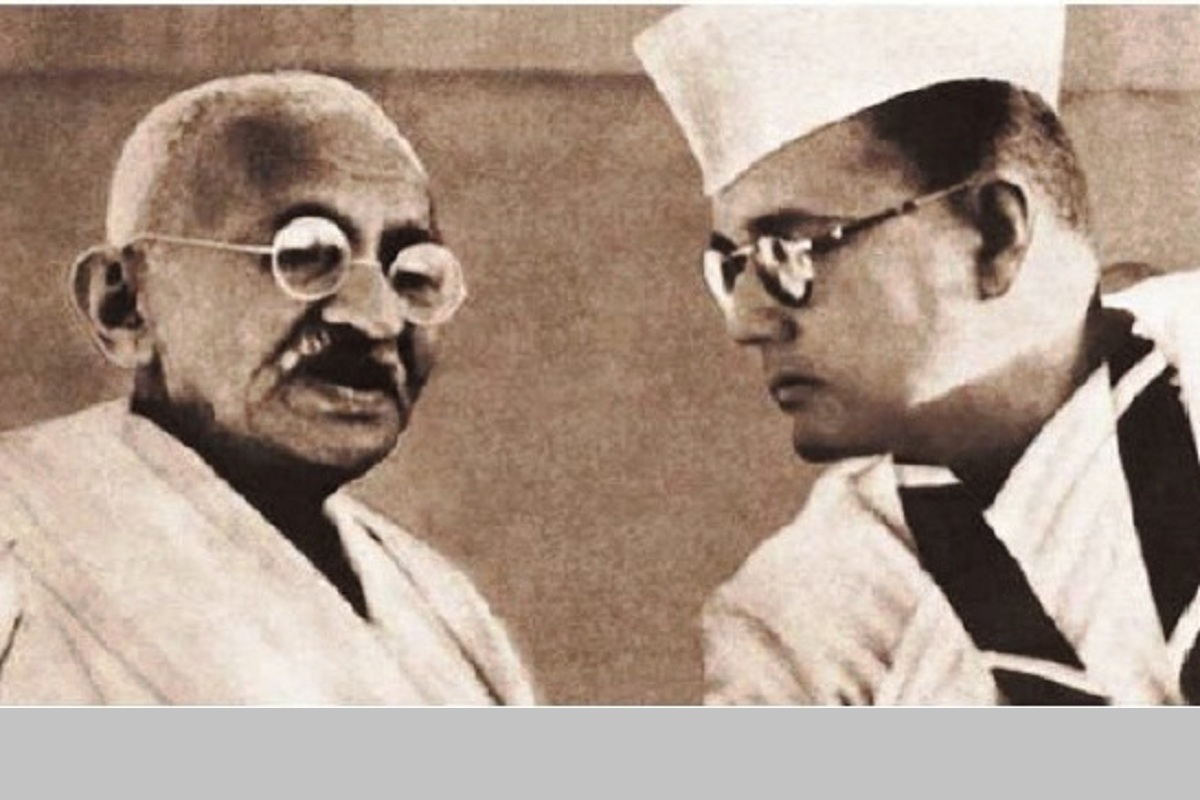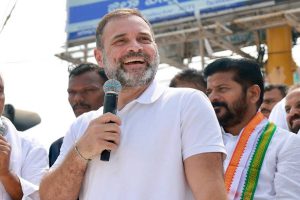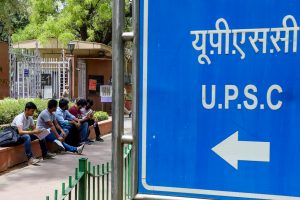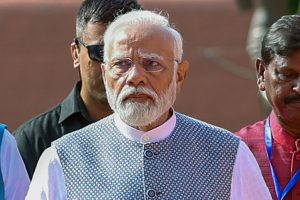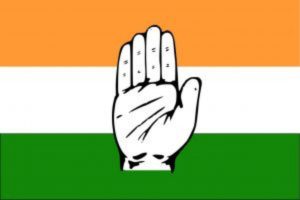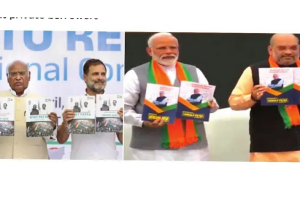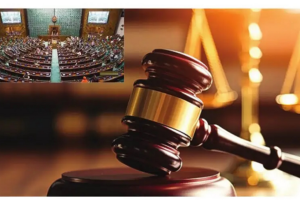Every leading personality runs the risk of being misinterpreted and criticized. Mahatma Gandhi had been enmeshed in controversies ever since he put his hand to the racial politics of Natal in South Africa and until he was assassinated. There have always been critics who have viewed Gandhi’s approach as naïve, utopian, escapist, negative and irrelevant. Critics hardly consider the fact that Gandhi lived and expressed his philosophy through his actions and his writings.
As he was a practical idealist, he never did or said or wrote anything that he had not practiced, and he also never expected another person to do anything which the man did not believe in. Mahatma Gandhi was essentially a dynamic person who went through an evolutionary process of change in his life. His policy was never static. He once said: “I am not at all concerned with appearing to be consistent. In my search after Truth I have discarded many ideas and learnt many new things. Old as I am in age, I have no feeling that I have ceased to grow inwardly, or that my growth will stop at the dissolution of the flesh.”
Gandhi often learnt from his critics ~ changing, improving and modifying his position time to time. He modified action in accordance with his expanding view of Truth. His character lay in his refusal to change unless convinced. Some of his critics also learned from Gandhi. Among those personalities Narendra Deva, Subhas Chandra Bose and B R Ambedkar reassessed their positions during Gandhi’s lifetime. Others, like Jinnah, did so later to some extent. Gandhi recorded his contradiction with any personality without expressing any wrath.
But in some cases his contradictions with some personalities were subjects of public discussion. Relation of Subhas Chandra Bose with Gandhi was more complex than that of a mere critic. Gandhi and Bose, two worthy sons of Mother India, were legendary personalities, gigantic in their political, moral and ethical stature. Though their dream was to free India from the British, they differed in the means they wanted to adopt. Young Bose, deeply influenced by the Russian revolt and rise of the Japanese empire, was a firebrand nationalist who believed in the tradition of Tilak and Aurobindo.
Gandhi, on the contrary, belonged to the tradition of discussion and talks with British like his mentor Gokhale and Tagore. Bose was a left oriented leader. Gandhi had a moralistic approach towards nation building. The biggest divergence was about India’s stand with respect to world politics. Gandhi had a moralistic stand of opposing the Nazi regime. Bose, on the contrary, was more pragmatic and wanted to work with Germany and Japan to destabilize the British. Bose was not averse to the idea of violence for independence. He was a deep believer in aggressive nationalism.
But Gandhi never subscribed to the principle that the end justified the means. To him, the means were as important as the ends. In his words: “They say ‘means are after all means’. I would say ‘means are after all everything.’ As the means, so the end. There is no wall of separation between means and end.” Gandhi used the tools of Satyagraha and Non-Violence to mobilize the masses as he believed that only mass participation could bring the British down. The Netaji Research Bureau, Kolkata, has brought out an invaluable publication entitled Crossroads.
The book provides a great deal of information on the Gandhi-Bose debate. However, despite wide difference, the two retained a sense of appreciation for one another. In the words of Professor Sugata Bose, the noted historian and grandnephew of Subhas Chandra Bose: “The difference between Mahatma Gandhi and Subhas Chandra Bose is highly exaggerated by the people of India and more particularly by the people of Bengal. The parting that took place in 1939 was a temporary one and if we study the relationship between Gandhi and Netaji, we will find that it was one that was marked with deep mutual respect.”
In 1939, Bose was elected president of the Indian National Congress (INC) by defeating Pattabhi Sitaramayya who was supported by Gandhi himself. That was the first time in the past two decades that Gandhi’s authority had been challenged within the INC. When Gandhi started his anti-untouchability programme on a nationwide scale in 1913, that was not supported by Bose. Despite many contradictions, the relationship between them was marked by deep love, affection and respect towards each other. Bose admired Gandhi and called him Bapu. He also hailed Gandhi as the ‘Greatest Indian’ who aroused the mass movement.
Bose’s broadcasts from S-E Asia often invoked Gandhi’s name and sought his blessings for the struggle. It was in the forties that Bose addressed Gandhi as the ‘Father of Nation’ in a broadcast from Azad Hind Radio on 6 July 1944. Obliviously delighted at the ‘Quit India’ Movement, Bose said in his Azad Hind Radio message from Berlin on Gandhi’s birthday in 1943 that, “The service which Mahatma Gandhi has rendered to India and to the cause of India’s freedom is so unique and unparalleled that his name will be written in gold in our national history for all times.”
Bose’s broadcast on the occasion of Kasturba’s death in prison was deeply moving. The INA formation which entered to fight in Myanmar and N-E India bore names such as Gandhi, Nehru and Azad. During an interaction, American journalist Louis Fischer asked Gandhi what he thought of Bose’s action to seek help from Germany during WW- 2. Gandhi had replied that ‘Bose was a patriot among patriots.’ Gandhi wrote in Harijan: ‘Netaji was like a son to me.’ Bhagat Singh was an Indian socialist revolutionary whose two acts of dramatic violence against the British in India and execution at the age of 23 made him a folk hero.
In the words of Jawaharlal Nehru: “Bhagat Singh did not become popular because of his act of terrorism but because of he seemed to vindicate, for the moment, the honour of Lala Laipat Rai, and through him of the nation. He became the symbol, the act was forgotten, the symbol remained, and within a few months each town and village of the Punjab, and to a lesser extent in the rest of the northern India, resounded with his name.” It is wrong to say that Gandhi viewed those who took to arms in the fight for India’s freedom with venomous and hateful eyes. Rather, he had respect for them though he had also no hesitation in telling them that they were wrong.
It is a fact that many fugitive revolutionaries felt free to meet and hold talks with him and argue with him fearlessly. Ever after the death sentence for three young heroes ~ Bhagat Singh, Rajguru and Sukhdev ~ in the Lahore conspiracy case was pronounced on 7 October 1930 by a controversial three-member special tribunal established by the British, the imperative to save their lives became a national issue. The general perception was that Mahatma Gandhi, who was thought to be the tallest national leader of India at that time, could have achieved that imperative. Gandhi tried his best to save their lives, but in vain.
Subhas Chandra Bose wrote in his book ~ The Indian Struggle ~ ‘Pressure was brought to bear upon the Mahatma to try to save the lives of these young men (Bhagat Singh and his two comrades); and it must be admitted that he did try his very best. On this occasion, I ventured the suggestion that he should, if necessary, break with the Viceroy on the question, because the execution was against the spirit, if not letter, of the Delhi Pact ( Gandhi-Irwin pact).’ However, Gandhi was greatly distressed by his failure. Gandhi was misunderstood. His failure provided a potent weapon in the hands of his critics who used it to malign him.
They charged Gandhi with the allegation that he did not play his role in this case and for not stipulating the revocation of the death sentence against Bhagat Sigh at the time of the Delhi Pact. But they failed to understand that Gandhi had more to gain by saving the lives of Bhagat Singh and his comrades. If he had succeeded in saving their lives, it would have been seen as the victory of nonviolence over violence and moral victory of Gandhi over the revolutionaries.
However, one can hardly afford to ignore a vital question: How could anybody who believed in violent armed revolution have faith in Gandhi, who was a leader of non-violent Satyagraha? Why should they expect Gandhi to save the revolutionaries from hangman’s noose? Gandhi did all that was within his power to save the revolutionaries. Just as a father loves all his children, including disobedient ones, Gandhi too cared for the welfare of all sections of society. This rare trait made Gandhi the Father of the Nation in the true sense of the term.
(The writer is a retired IAS officer)

